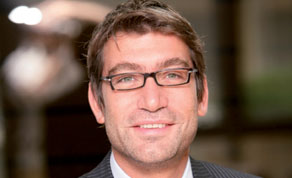 |
| Dr Walid Fayad |
GCC countries are likely to invest more than $100bn in their water sector up to 2016 even as the region faces water over-consumption with per capita higher than the global average.
A study by Booz & Company highlights the seriousness of excess water consumption in the GCC region.
On a per capita basis, Saudi Arabia and the United Arab Emirates consume 91% and 83% more water than the global average, and about six times more water than the UK.
Qatar and Oman are also above the global average for water consumption, despite their desert climates, the study shows.
GCC residents and businesses have “disregarded the consequences” of their water usage to enjoy benefits more common in countries with ample rain and overflowing aquifers. But with the population of the GCC increasing in excess of 2% a year, and with rapid expansion in the region’s economies, there is a growing recognition within many GCC governments that current water consumption patterns are unsustainable.
“Water scarcity is a reality in just about every Arab country,” said Dr Walid Fayad, a partner in Booz & Company’s energy, chemicals and utilities practice, adding: “If they don’t make changes, these countries will find themselves in serious trouble.”
GCC governments recognise the issue and have begun taking measures to address it: For instance, Saudi Arabia will phase out purchases of locally produced wheat by 2016 in order to discourage its growth and reduce the burden that farming imposes on the kingdom’s water resources.
GCC governments have a number of tools at their disposal to ensure the sustainability of their water supplies. They include agriculture reforms under which farming will be limited to areas that have renewable water sources and local farmers encouraged to focus on crops that need less water.
Besides educating consumers on conserving the precious natural resource, the GCC governments must consider tariff structure reforms, Booz & Company suggests.
“The GCC governments should restructure their water tariff structures so that pricing follows usage, with heavy users of water paying the most. Besides increasing economic efficiency, this sort of price signalling would reduce waste. To the extent that subsidies remain part of the tariff system, they can be directed at guaranteeing potable water for poorer residents, at supporting economic growth and other national priorities,” the study says.
Desalination provides two-thirds or more of the potable water used in the UAE, Kuwait, Qatar and Bahrain, and will continue to play a huge role in the GCC’s water development efforts.
But desalination carries enormous economic and environmental costs. Despite a more than fivefold improvement in efficiency since 1979, the $1 it costs to desalinate a cubic metre of seawater is still a relatively expensive way of producing potable water.
Moreover, seawater desalination is an energy-intensive process, consuming eight times more energy than groundwater projects, and accounting for between 10% and 25% of energy consumption in the GCC. This adds to the problems of energy intensity already plaguing the region. The desalination process also discharges salt back into the Arabian Gulf and other oceanic sources, jeopardizing their marine life and introducing new environmental risks.
GCC countries will likely invest more than $100bn in their water sectors between 2011 and 2016. Some of these investments will be in improved desalination technologies, which could involve solar energy or new ways of filtering out salt or making it evaporate.
GCC countries need to increase their use of treated wastewater. Reuse water, as it is also called, isn’t used for drinking, but at one-third the cost of desalinated water it is a good alternative for activities such as maintaining the landscaping near public roads, irrigating non-food crops, district cooling, and cooling power-generation equipment at industrial facilities, Booz & Company said.

